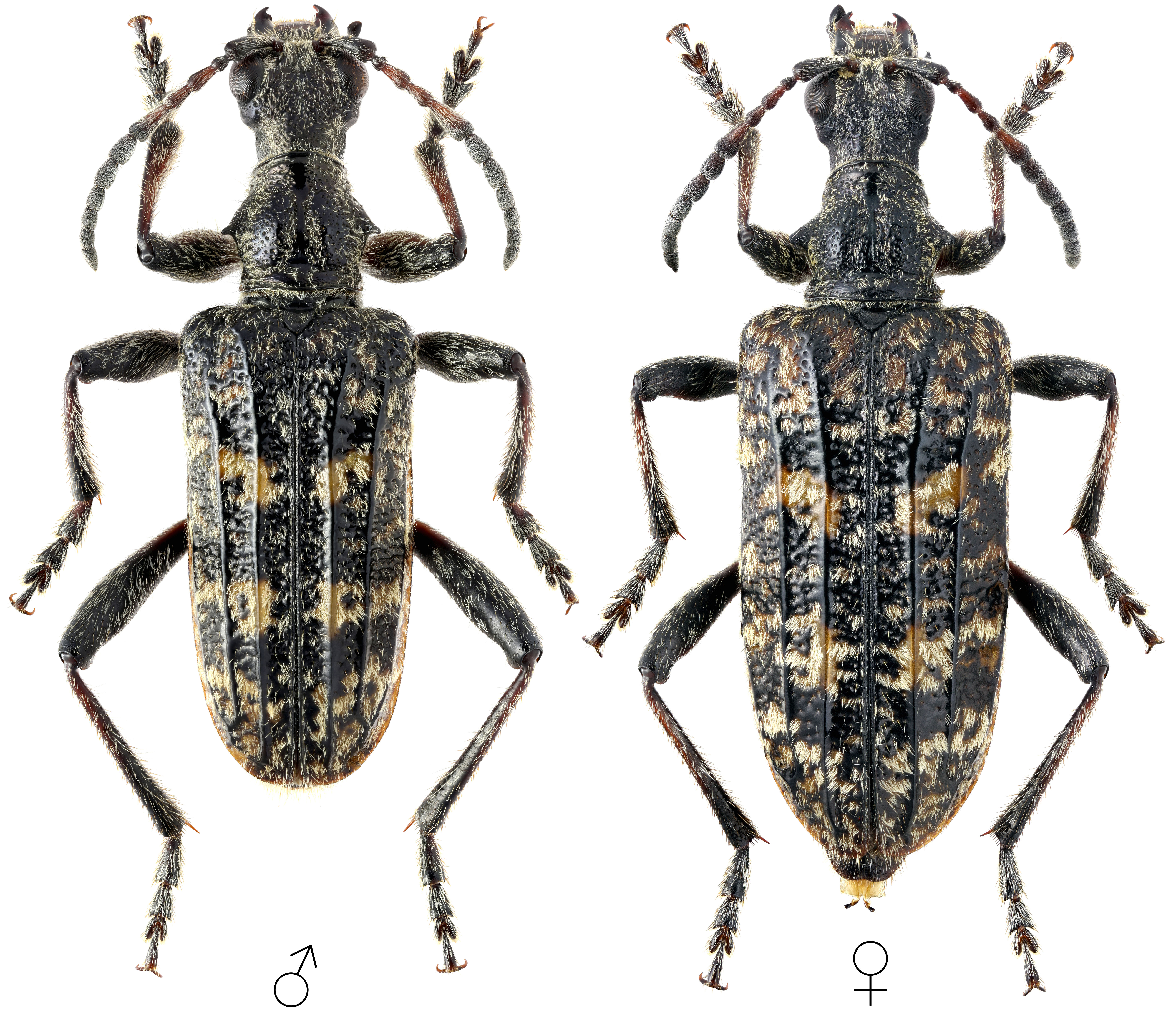Subfamilia: LEPTURINAE / Tribus: RHAGIINI

[Photo © Kirill V. Makarov, click on the picture for 4K resolution]
Rhagium japonicum, a sister species of R. (R.) inquisitor rugipenne Reitter, 1898 [*] occuring in Russian Far East and Japan, has been described from Honshu Island (Japan) as Rhagium inquisitor var. japonicum by Henry Walter Bates in 1884 [▽]. Larvae of this species develop and pupate under bark of dead coniferous trees. Pupation and hatching at the end of summer, adults overwinter in pupal cells and emerge during the following spring. Adult, active in spring and early summer, can be found on uprooted/felled trees or logs and occasionally visit flowers [❖].
Body length: ♂♂ 9 - 14 mm / ♀♀ 10 - 18 mm Life cycle: 2 years Adults in: May - July Host plant: polyphagous in coniferous trees (Abies, Picea) Distribution: Russian Far East (Sakhalin, Kuril Islands) and Japan
The depicted male (11 mm) was collected in Grozovoe (Грозовое) settlement environs on Cape Ivanovsky (N43°50′28″ E145°24′29″) on July 8-9, 2013 and the depicted female (13 mm) was collected in the right side of the Severyanka (Северянка) river valley (N44°20′18″ E146°00′42″; 20-40 m a.s.l.) on July 28, 2013. Both localities are located in the Kurils Nature Reserve (Kunashir/Кунаши́р island, Kuril Islands, Yuzhno-Kurilsky district, Sakhalin region, Russia).Collected by Yu.Sudnikov, L.Sudnikova and Kirill V. Makarov
[▽]
Bates H.W.:
Longicorn beetles of Japan. Additions, chiefly from the later collections of Mr. George Lewis; and notes on the synonymy, distribution, and habits on the previously known species.
The Journal of the Linnean Society of London. Zoology 18: 205-262, 1884. [download]
[❖]
Danilevsky M.L.:
Longicorn beetles (Coleoptera, Cerambycoidea) of Russia and adjacent countries. Part 1.
Higher School Consulting, Moscow, 550pp [pages 90-91], 2014. [download]
[*] The species is characterized by very dark elytra with very coarse sculpture and weakly developed swelling on pronotum. From the mainland R. (R.) inquisitor rugipenne (as well as from other subspecies of R. inquisitor) differs primarily by the structure of the male genitalia (blunt apex of the aedeagus) and also the constant presence of a wide smooth longitudinal stripe on the pronotum [❖].
| Subfamilia | Lepturinae Latreille, 1802 |
| Tribus | Rhagiini Kirby, 1837 |
| Genus | Rhagium Fabricius, 1775 |
| Subgenus | Rhagium Fabricius, 1775 |
| Species | Rhagium (Rhagium) japonicum Bates, 1884 |
